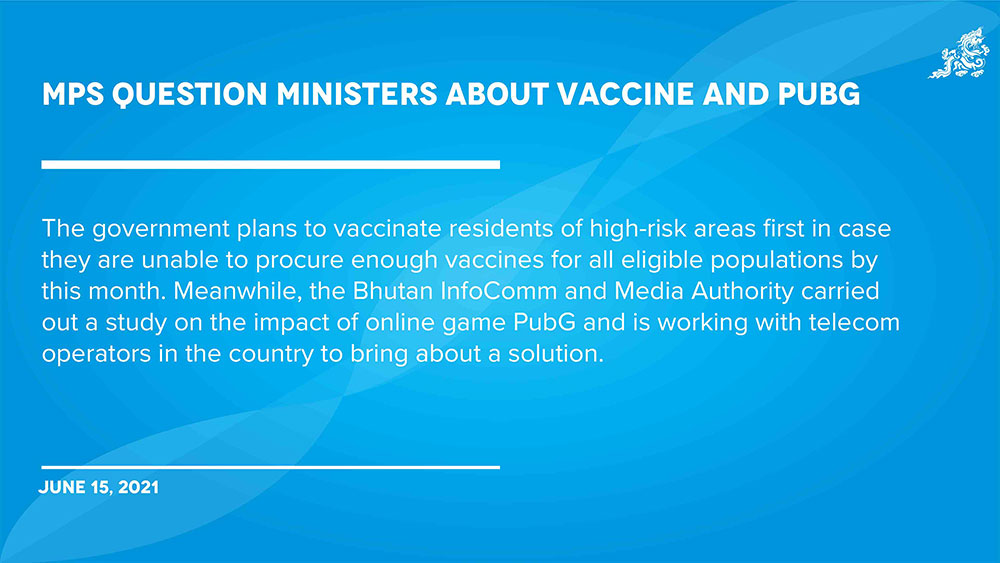The government’s plan is to vaccinate the residents of high-risk areas first in case it cannot procure vaccines for all the eligible population by this month, according to Foreign Minister Dr Tandi Dorji.
This was in response to Nanong-Shumar MP Lungten Namgyel’s suggestion on the vaccine’s second dose for the people in the high-risk areas in case of a surplus from the first vaccination programme in March.
Lyonpo Dr Tandi Dorji said that there were 61,700 surplus vaccine doses. He informed the House that the surplus was given to students or caregivers travelling to other countries and mothers who could not vaccinate during the first nationwide Covid-19 vaccination.
The total vaccines required for people living in the border areas is 72,753 doses, Lyonpo said.
“Vaccinating the eligible population is more effective,” he said, adding that if the government can procure the required number for the vaccine’s second dose within this month, eligible population will be vaccinated.
“However, if we do not get the vaccines, as suggested by the National Immunisation Technical
Advisory Committee to vaccinate residents in a high-risk area, we will discuss with the National Covid-19 Taskforce.”
Lyonpo said that the government, however, was aiming to vaccinate the entire eligible population.
Bomdeling-Jamkhar MP asked about the Ministry of Information and Communications’ (MoIC) initiatives to ban online game PlayerUnknown’s Battlegrounds (PUBG).
MoIC’s minister, Karma Donnen, said that the Bhutan InfoComm and Media Authority carried out a study on the impact of the online game and was working with the telecom operators in the country to bring a solution.
Tencent, a Chinese multinational technology company, owns PUBG and applications such as WeChat and TikTok.
Lyonpo said: “If we are not careful, then users will not be able to use those applications.”
He said that if the telecoms operators in the country were to install equipment to ban the game without proper planning, the consumers might see an increase in the data charges.
By Chhimi Dema
Edited by Jigme Wangchuk


